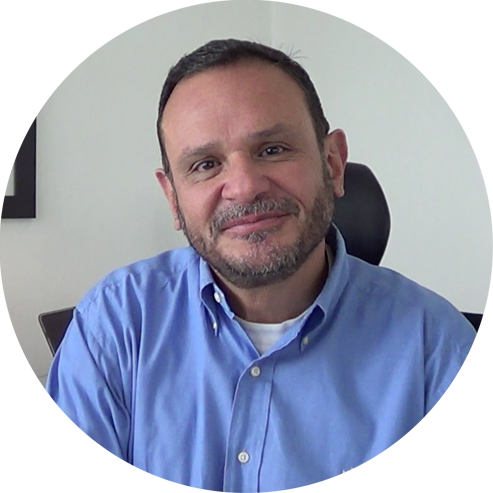The WWF is run at a local level by the following offices...
Dear friends and colleagues,
July was a month full of key events in our region. In Mexico, citizens and visitors of the city undertook a fantastic trip with some emblematic species. From Guatemala they reminded us with music, the importance of showering for a fair and necessary period of time. The Orinoco basin in Colombia was evaluated and passed the test, but still needs to improve. Educators in Paraguay were happy because they will have practical tools for training in climate change. In Peru there was an unprecedented event: the categorization of three indigenous reserves in the Amazon was adopted to ensure the existence and integrity of indigenous peoples in isolation. From Argentina, during the Olympics, a campaign was launched to include a sixth ring for Antarctica in the Olympic symbol. And finally, we celebrate the increase in the population of tigers with our global campaign. I hope you enjoy reading,

Roberto Troya
Vice-president, WWF-LAC
Mexico
Sharks, whales and jaguars, all together in the Zócalo square (Mexico City)
More than 50 thousand people learned about the importance of conserving endangered or threatened species and their habitats in Mexico, all this in a playful experience developed in the heart of Mexico City, the Zócalo main square, under the name of “Amazing Voyage”, a staging accompanied by images, embracing sound effects, and real-size jaguars, white sharks, hawksbill turtles and a sea lion puppets. The 120 square meters pavilion was produced by the Alliance WWF-Fundación Telmex Telcel and presented from July 15 to August 5 as part of the Aldea Digital (Digital Village), the world's largest digital inclusion event, which received more than half million visitors.
Guatemala
Innovation in Guatemala: a mobile app to reduce water consumption
In Guatemala, WWF and local partner Fundación Defensores de la Naturaleza developed a mobile app called “Duchapp” which allows reducing water consumption during the shower. It is based on a song that lasts less than 5 minutes and that guides the steps a person has to follow to take a shower without wasting water. The app is free and is expected to be used in Latin America and other countries of the world.
Discover more
Colombia
The Orinoco’s final exam
World Wildlife Fund and the University of Maryland Center for Environmental Science, along with local partners, released the Colombian Orinoco River Basin Report Card -- the first of its kind in of South America -- to track progress against global water management goals. With a B- for the Orinoco river basin, the report card serves as a model for building comprehensive, community-driven, scientifically credible basin assessments that can work anywhere in the world.
Discover More
Paraguay
WWF presents attractive tools for trainers on Climate Change
Through the initiative Paraguay Land Use (ParLu), carried out jointly by the Federal Ministry for the Environment, Nature Conservation, Building and Nuclear Safety of Germany (BMUB), World Wildlife Fund (WWF-Paraguay and WWF-Germany), and with the support of Itaipu Binacional, a manual entitled “Climate Change, forests and measures to reduce emissions from deforestation” has been launched for teachers and communities. Accompanying the manual is an educational kit for teachers, which includes 17 infographics posters, radio spots and TV, scientific reports, among other tools. It is a guide for discussion in educational institutions for children, youth, teachers and communities who are interested in learning more about the concepts behind climate change, its impacts and the links between forests and climate solutions, as outlined in the international strategy Reducing Emissions from Deforestation and Forest Degradation (REDD+).
Discover more
Peru
The first Three Indigenous Reserves are created in Peru
In July 2016, by Supreme Decree the categorization of three indigenous reserves was approved in benefit of the protection of rights, habitat and conditions that ensure the existence and integrity of Indigenous Peoples in isolation and Initial Contact (PIACI). These are the Mashco Piro, Murunahua and Isconahua Indigenous Reserves, located in the Ucayali region, which in total account for a territory of 1'575,850.66 hectares. Several institutions took part in the process, including WWF-Peru, who together with the NGO ProPurús, were in charge of the development of the Additional Studies of Categorization of the Territorial Reserves Mashco Piro and Murunahua, while the Institute Common Good (IBC) was in charge of the studies for the Isconahua Territorial Reserve.
Discover more
Argentina
Add the ring for Antarctica
As Antartica is threatened by climate change, Vida Silvestre launched “Add the ring”, a campaign to raise awareness about the true importance of this continent, on the eve of the Olympic games. The campaign claims for a symbolic sixth ring to the the world as a whole. On the eve of the 2016 Summer Olympics, Vida Silvestre launched the campaign, "Add the ring" ("Un anillo más" in Spanish), which proposes the symbolic inclusion of a sixth ring in the official emblem of the games: one for Antartica. Each ring in the Olympics stands for a continent, but Antartica is missing. To realize the true value of the icy continent is a way to see the world as it really is, as what happens there affects all the planet.
Discover More
Global Tiger Campaign Tx2
TX2 Thumbs up for Tigers
Global Tiger Day is on 29 July. This year is especially important as it marks the half way point of Tx2 - the global goal to double wild tiger numbers. To raise awareness, we launched an innovative digital campaign called "Thumbs Up For Tigers" in collaboration with the National Geographic Explorer and artist, Asher Jay.
Discover more
In the Media
··· WWF-LAC ···
In the Media
+1200 articles published
Featured Articles:

Two kids find a baby beluga and try to save its life
119M people reached

The Orinoco under threat
119M people reached
Data: July 1 - 31
LAC in Social Media
+331m potential impressionsin the @WWF-LAC Twitter account
Twitter:

Bogor Wins We Love Cities challenge 2016
Data: July 1-31